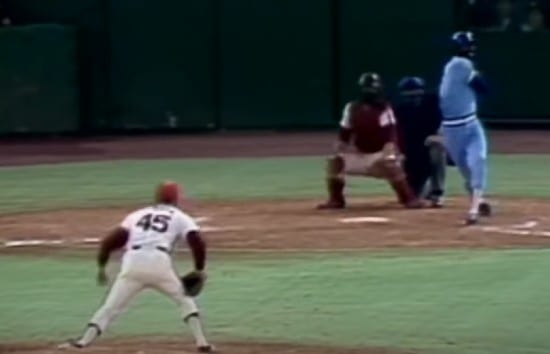I’m a “New Associate Coach” at the Big Box which, as the name suggests, is big. On Day One for new hires, there’s a lot of ground to cover — literally. We have to introduce them to all kinds of retail lingo and Big Box-specific jargon, processes, procedures, policies, people, tools, tasks, tricks, etc., and we have to cover all of that quickly. It’s way to much for anyone to absorb at one time.
So what I tell the newbies is this: Relax. This is new to you, and you’re hearing it for the first time. Don’t worry about remembering all of this now. There won’t be a quiz at the end of this tour. You won’t remember all of this until after you’ve heard it three times, and in order for you to hear it three times, we’ve got to get the first time out of the way, and that’s what we’re doing now.
That’s how it works when we’re introduced to something new — especially to something new to us that’s too big to absorb all at once. The first time we encounter it, all the strange lingo and territory and information all at once can be kind of dizzying. That’s fine. It doesn’t all need to sink in the first time. That comes later, after the first encounter rinses away some of that strangeness.

This is why I’m feeling sympathetic toward conservative pundit David French as he struggles to maintain his footing after what seems to be his very first encounter with Randall Balmer: “Fact and Fiction About Racism and the Rise of the Religious Right.”
That column is a good example of why we don’t give newbies a quiz after their first big tour on Day One. It would be cruelly unfair to require anybody to absorb and understand so much new information all at once. Alas for David French, he’s a pundit, and thus felt compelled to give himself such a quiz — in writing, in public — and that doesn’t work out so well for him. His attempt to respond to Balmer’s history of the religious right goes sideways because he wrote it before he gave himself a chance to absorb all the new information he was newly encountering.
Granted, this shouldn’t be entirely new information for someone French’s age. What he defensively lashes out at as Balmer’s “narrative” of history ought to be part of his living memory. It’s part of mine and we’re roughly the same age. Like me, David French grew up in a white evangelical church that was lockstep conservative politically long before abortion politics ever became a thing for our people. That didn’t happen until we were teenagers. Before that, abortion politics wasn’t even a blip on our radar. I didn’t need to read Randall Balmer to learn that, I lived it. It ain’t history. It’s memory.
To be fair, French was only 11 years old when Ronald Reagan was elected president with the overwhelming support of the religious right and of white Christians like his family and mine. And by the time you’re in your 50s, memories of being 11 may have grown a bit fuzzy. It’s easy to project current attitudes back onto that past, blurring and confusing the earlier bits with the later bits. And that’s especially true of mythological, um, narratives that we’ve been steeped in for decades — such as the suggestion that the 1980 election was all about white Christians turning into Reagan Republicans because of abortion politics.
Nope. That didn’t happen. White Christian support for Reagan in 1980 wasn’t about abortion. It was about Commies, and the hostages, and the Commies, and welfare queens and “states rights” and the Commies. That’s harder to remember today than it is to remember, say, Tug McGraw striking out Willie Wilson to end the 1980 World Series, but then we haven’t had decades of self-aggrandizing myth-making intent on convincing us the Phillies never beat the Royals.
In any case, it’s not Randall Balmer’s “narrative” or “theory” that abortion politics didn’t come to reshape white evangelical politics (and theology, and ecclesiology, and identity, and doctrine, and piety, evangelism, spiritual practice, prayer, hermeneutics, education, discipline, etc.) until more than a decade after Roe v. Wade. It’s simply what happened. I was there. I remember.
You don’t have to take my word for it, though. Here’s the editors of the belligerently conservative journal First Things, describing early 1980s white Christian support for Reagan in 1996: “At that time the Cold War was the dominant fact in international affairs and largely shaped domestic politics.” That’s from the introduction to the journal’s reprinting of its founder’s 1981 manifesto “Christianity and Democracy” on its 15th anniversary. That essay never mentions abortion politics. Or abortion. At all. It argues, rather, that anti-communism ought to be the No. 1 priority for good white Christian voters, and that anything else is a dangerous and irresponsible distraction from that paramount concern.
Nobody indignantly condemned Richard John Neuhaus in 1981 for failing to mention the moral horror white evangelicals were experiencing after years of legal abortion had forced them to confront the new reality of millions of “murdered babies.” Because that moral horror hadn’t yet been conjured up. White evangelicals were Cold Warriors and as long as the Cold War was a sufficient basis for their politics, theology, and identity, it wasn’t necessary yet for them to reinvent themselves as culture warriors.
Anyway, the really fascinating thing about David French’s premature response to Randall Balmer is the way it confirms and exemplifies the very history/memory that Balmer recounts. If you want to understand how the religious right rose as a backlash reaction to the Civil Rights Movement, read Randall Balmer. If you want to see what that looks like, in practice, read that David French column. We’ll return to this subject later, in greater detail, but it’s spring at the Big Box and I’ve got to go coach some new associates.












